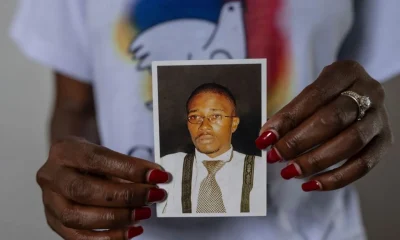Faith
A Resounding Call for Justice: Grace Morgan Urges Balokole Churches To Pay Their Workers
In a powerful and poignant address reverberating across the Balokole (born-again) Christian community in Uganda, gospel artist Grace Morgan has ignited a crucial conversation, issuing a fervent plea directly to Balokole churches to recognize and financially support the unsung heroes tirelessly serving within their ministries.
From the diligent ushers who greet congregants to the gifted instrumentalists—pianists, drummers, and vocalists—who elevate worship, Morgan’s impassioned appeal shines a much-needed spotlight on individuals who often dedicate their lives to God’s work with little to no financial compensation.
Morgan, known for his own success, spoke not for personal gain but as a resolute advocate for the overlooked, particularly gospel musicians. “I will speak on behalf of others because, for me, I have been blessed that I can get all the money I want,” he stated unequivocally. “But gospel singers are the ones most suffering. That’s why they are the servants I respect the most.” This selfless stance underscores the gravity of the issue and Morgan’s deep empathy for his fellow labourers in Christ.
He didn’t mince words when dissecting a pervasive and deeply problematic mindset prevalent among many Balokole believers: the belief that gospel musicians should not receive payment for their invaluable services. Morgan vehemently labelled this perspective as both “unrealistic and unfair.” This widespread notion, he argued, completely disregards the significant financial investment inherent in creating and promoting gospel music.
“Some of them have to buy songs from songwriters, record, shoot videos, and then suffer with promotion,” Morgan elaborated, detailing the arduous and costly journey many gospel artists undertake. Beyond the spiritual dedication, there are tangible, real-world expenses that accrue long before a single note reaches a congregation. To expect these individuals to bear such financial burdens while simultaneously serving the church without compensation is not only unjust but unsustainable.
Morgan’s message is a clarion call to action, demanding a fundamental reevaluation of how Balokole churches approach and value their ministry workers. It’s a powerful indictment of a system that often prioritises spiritual input over the practical needs of those providing it. His advocacy extends beyond mere recognition; it is a forceful demand for these churches to embrace a holistic approach, valuing ministry workers, especially gospel musicians, not just spiritually, but financially as well.
The time for silent sacrifice and uncompensated dedication, Morgan asserts, must come to an end. His courageous stand has undoubtedly sparked a vital dialogue, challenging the status quo and urging Balokole communities to align their actions with the very principles of fairness and support they espouse.
The question now remains: will Balokole churches heed Grace Morgan’s powerful appeal and finally provide the financial justice their dedicated servants so rightly deserve?
Comments



























